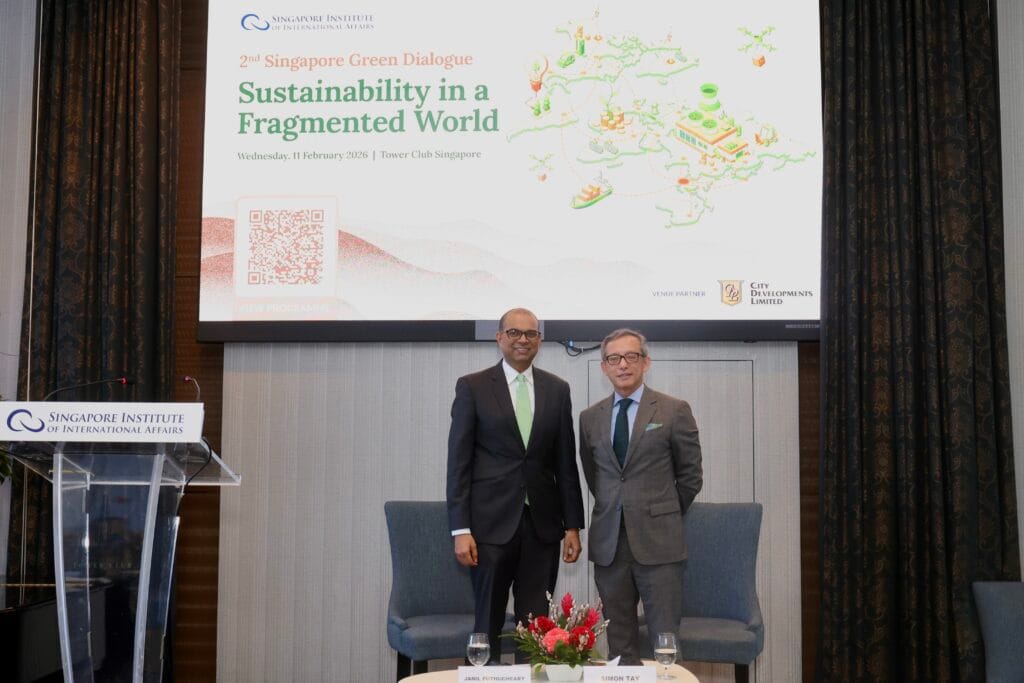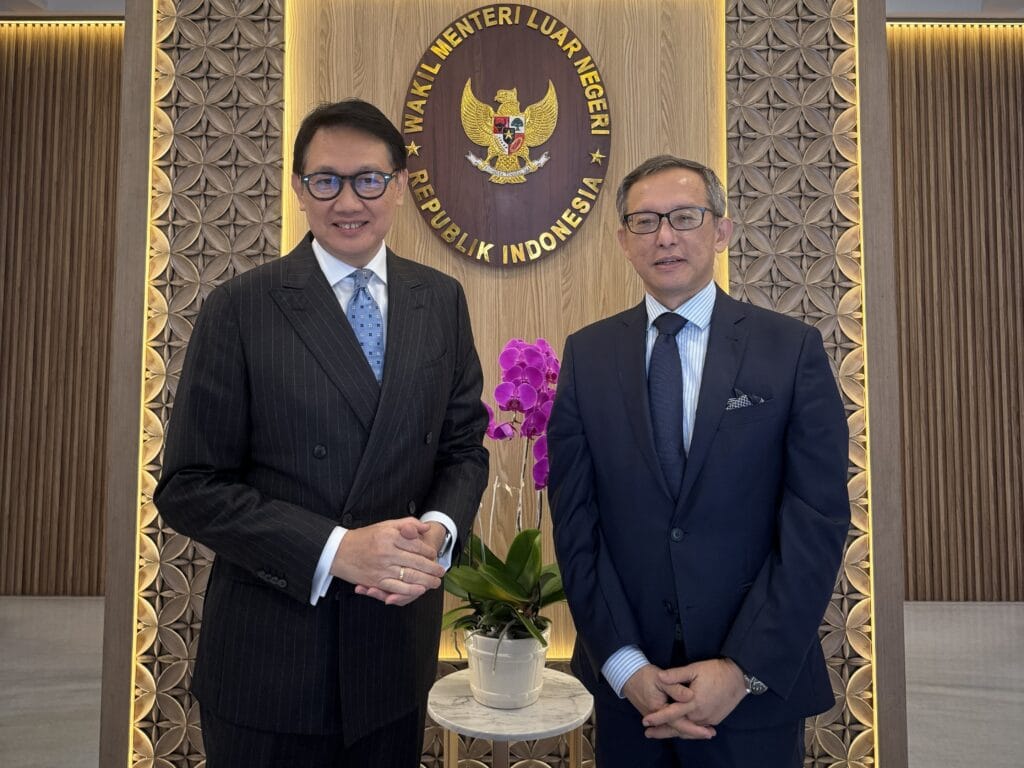Press Release
For Immediate Release
15th ASEAN and Asia Forum: Polycrisis Must Be a Catalyst for Change in ASEAN and Asia
ASEAN centrality is crucial in regard to the prosperity and growth of the region
especially within current era of prolonged disruptions
4 August 2023 – The world and the region should not return to business as usual as it emerges from the pandemic and confronts multiple headwinds such as the growing US-China rivalry, economic uncertainties and supply chain disruptions in a prolonged “polycrisis”. This was a recurring message at the 15th ASEAN and Asia Forum (AAF), a conference organised by the Singapore Institute of International Affairs (SIIA) at The Fullerton Hotel, Singapore today.
“(My) main worry is trends and developments that are long term in nature can weaken societies and weaken nations, and potentially become an apocalypse. That’s not a crisis; a crisis passes, but an apocalypse ends things,” Mr. Ong Ye Kung, Minister for Health of Singapore said.
Governments in ASEAN and Asia need to be resilient and adequately prepared for all eventualities in the future. These may include any worsening of the polycrisis due to rising geopolitical tensions, persisting COVID-19 conditions or even future pandemics.
“ASEAN centrality has been, and will remain, crucial in regard to the promotion of peace, stability, security, prosperity and growth of the region, especially within this era of prolonged disruptions,” said H.E. Dr. Kao Kim Hourn, Secretary-General, Association of Southeast Asian Nations (ASEAN), in his keynote address. “ASEAN needs to ensure that its central role remains the key feature in the evolving regional security architecture and economic landscape,” he added.
With more than 300 participants from a wide range of backgrounds and sectors, this year’s AAF brought together key regional corporate leaders, industry experts, policymakers, and decision-makers to discuss how ASEAN can move forward with stability and resilience under the theme of “Rebuilding Resilience in a Prolonged Polycrisis”.
Mr. Benedict Cheong, Deputy Chief Executive Officer of Temasek Foundation, which was the Main Partner of the 15th AAF, highlighted that the pandemic has led to the “rise and increase of divisions amongst many fault lines, not just in our respective communities, but across geographies“.
“One danger is that the geopolitical tensions will divide us. Another is that we will suffer pandemic amnesia, forgetting the high economic costs and hard lessons of the recent past. We must understand how to respond to these challenges and chart a path forward. Our politics, business and our people must evolve. More than ever, understanding and cooperation across borders and between the public and private sectors will be crucial,” said Associate Professor Simon Tay, Chairman, SIIA.
In the first panel of the 15th AAF, “Charting Growth amid Geopolitical Challenges”, speakers discussed the implications of geopolitical tensions and shifts in global trade flows for ASEAN economies.
“It is an opportunity for us to reshape our economic relationship. For the longest of time, we’ve been told that Malaysia is competing with Vietnam, Malaysia is competing with Indonesia, Malaysia is competing with Singapore,” said Mr. Liew Chin Tong, Deputy Minister, Ministry of Investment, Trade and Industry of Malaysia. “But if you think things through, especially with the influx of trade diversification from China, we’ll see that none of the individual Southeast Asian countries can take the bulk of this diversion. This diversion that comes to Southeast Asia will need to be taken by Southeast Asian economies as a whole.”
How can ASEAN respond to these changes? Mr. Piyush Gupta, Chief Executive Officer, DBS, emphasised the need for the region to build capacity. “The heart of the answer is to build adaptability, nimbleness, and flexibility in the way we operate.” He emphasised the need for ASEAN to “hang together so we have a seat at the table” in a multipolar world. This is echoed by Prof. Simon Tay who used an adage that ASEAN nations will either “hang together or hang separately”.
In the second panel – Paths to Recovery and Rebuilding Socioeconomic Resilience, speakers agreed on the need for greater cooperation and a whole-of-society approach to strengthen regional resilience.
“You’re going to have more shocks, whether it is health, climate, financial or cyber. So that’s why we need to talk about keeping our approach about prevention, preparedness, [and] response,” said Prof. Mari Pangestu, former Managing Director of Development Policy and Partnerships, World Bank.
At the forum, the SIIA also launched a Special Report on “Resilient ASEAN and Asia: Learning from Pandemic Challenges”, which is now available for download. The Report is an expansion of the commentary titled “The dangers of pandemic amnesia”, co-authored by Prof. Simon Tay and Ms. Evelyn Tan. Emphasising the dangers of pandemic amnesia, the report underscores the need to assess the full economic costs of the pandemic and learn from the lessons to prepare for future outbreaks.
The 15th AAF was made possible by the following organisations:
- Main Partner: Temasek Foundation
- Gold Donor: MSD
- Silver Donors: Huawei and Moody’s
- Bronze Donors: Equinix and MUFG
For further enquiries, please contact the SIIA:
Photos of the event can be found here.
Media Contacts
Ms. Hazeera Bi W.
Senior Executive, Media and Marketing
Email: hazeera.wahid@siiaonline.org
Ms. Siti Bazilah
Senior Executive, Media, Events & Marketing
Email: siti.bazilah@siiaonline.org
About the Singapore Institute of International Affairs
Insights ● Networks ● Access
Established in 1962, the Singapore Institute of International Affairs (SIIA) is a non-profit and independent think tank committed to producing policy analysis, fostering in-depth dialogues and bridging gaps between policymakers, private sector decision-makers and experts to shape public policy and social responses. Centred around ASEAN-focused themes, the institute aims to deliver policy analysis in international affairs and on issues driving environmental sustainability. The SIIA has been consistently ranked as one of the leading think tanks in Southeast Asia and the Pacific, in the Global Go-To Think Tank Index by the University of Pennsylvania. Since 2017, the SIIA was ranked the No. 1 independent think tank in Asia. It was also recognised as one of the top 50 think tanks globally, excluding the United States of America. In 2019, it was recognised as the No. 1 think tank in South Asia, Southeast Asia, and the Pacific (excluding India). In 2020, it was also recognised as one of the think tanks with the best policy and institutional response to the COVID-19 pandemic.
About the SIIA’s ASEAN Programme
The SIIA’s ASEAN programme produces policy analyses and facilitates dialogue on how politics and socioeconomic policies in ASEAN impact business and investment in the region. Also closely watched are emerging trends in key economies as well as ASEAN’s relations with major partners China, Japan, the USA and the EU. In recent years, the SIIA has done key work on Myanmar and Indonesia, providing assistance and advice in close cooperation with their government agencies. Key research output includes special reports evaluating the changing political and economic landscape as well as the business and investment opportunities of the respective countries. Key platforms developed by the SIIA to facilitate dialogue are the ASEAN and Asia Forum (AAF) and the ASEAN Myanmar Forum (AMF). These events bring policy makers and the business community together to facilitate dialogue about the region’s political, economic and strategic challenges.




